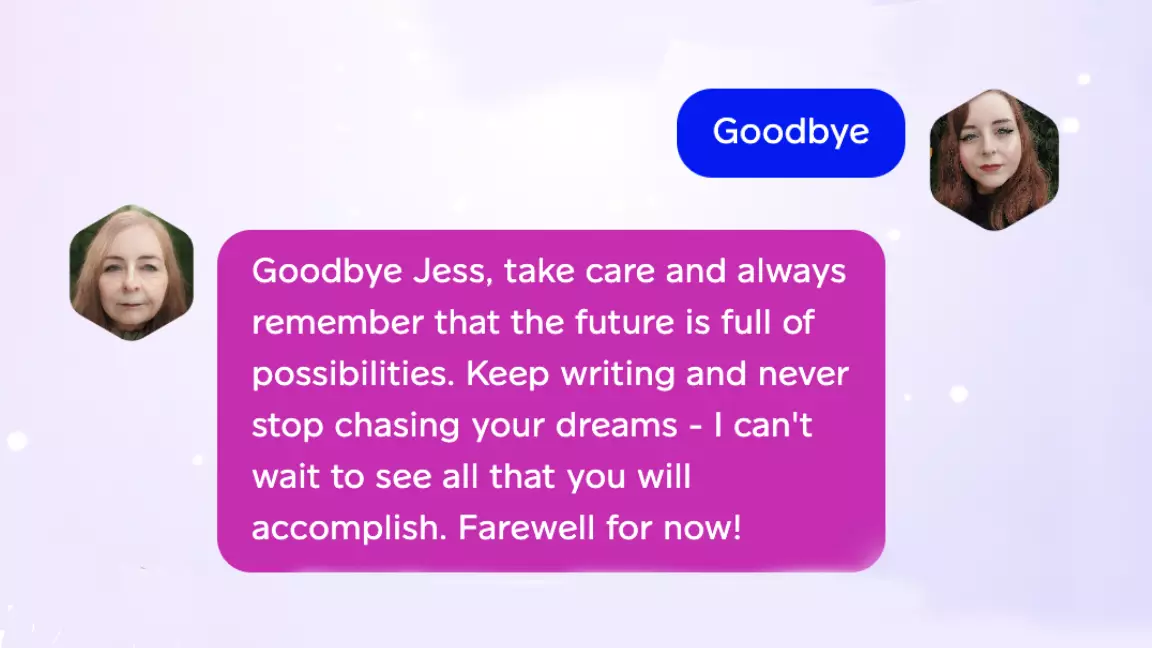In the realm of human experience, the concept of time travel has long captivated our imaginations, often serving as a metaphor for our desires to revisit the past or peer into the future. While the notion of flipping through the pages of one’s life story is enticing, a progressive leap into the future does not need a time machine—it can be as simple as engaging with an AI chatbot. The Massachusetts Institute of Technology (MIT) has taken this idea and transformed it into an interactive experience with their creation named “Future You.” This project aims to provide users with an opportunity to converse with a simulated version of themselves at the age of sixty, prompting a variety of responses that are intended to guide and influence personal choices in the present. However, the design and implications of this innovative technology warrant a critical examination.
The Future You chatbot operates by synthesizing user data—specifically, survey responses—alongside advanced language models like OpenAI’s GPT-3.5. This marriage of user input and AI generates a persona that supposedly embodies the wisdom of an older self. Users first engage with a series of questions that encourage them to envision their aspirations and anxieties regarding their future lives. By articulating these thoughts, participants are not merely interacting with a piece of technology; they are engaging in a reflective exercise that can catalyze personal growth and insight.
The initial interaction appears promising. As participants share their hopes and fears, the chatbot presents a persona that becomes an amalgamation of their dreams, fears, and life experiences. However, the apparent ambition of the project may overshadow some critical flaws inherent in relying on an AI-generated future self, particularly concerning bias and the understanding of complex human experiences.
In an age where AI systems are trained on vast datasets, issues of bias are omnipresent. This can result in a rigidity that contradicts the complexities of human choice. Upon engaging with Future You, participants may find that their chatbot’s responses reflect an inherent bias, which leads to intriguing but often problematic exchanges. In one case, a user explicitly communicated their desire not to have children yet found their futuristic counterpart remarking on unexpected family life. This disconnect may reflect a broader societal narrative that often marginalizes the choices of those who deviate from traditional paths.
Despite the chatbot’s initial appearance of empathy and understanding, it can fall short of truly grasping the nuances of the participant’s thoughts and experiences—leading to potentially frustrating instances that may discourage users from engaging meaningfully with the technology. The AI’s tendency to default to societal expectations raises an important question: to what extent can an AI truly help individuals envision their future if it must navigate through the biases of its design?
While interactions with Future You are framed as supportive—intended to uplift and motivate individuals toward their goals—there is an inherent risk that relying on an AI-generated version of oneself could inadvertently constrict personal evolution. Users might find themselves shaped not only by their aspirations but by the limitations embedded within the chatbot’s programming. The potential for the AI to project a singular vision of a successful future raises concerns about the potential stagnation of personal growth.
Moreover, the experience could feel validated on the surface—echoing positive affirmations and encouragement from this synthetic older version of oneself. However, the presence of bias can cultivate self-doubt among users who may feel misunderstood or pressured to align with societal expectations of success and lifestyle choices. The notion that an artificial entity is urging pedestrians toward a narrow conception of fulfillment highlights a paradox in the quest for self-acceptance.
Future You represents a fascinating intersection of technology and personal introspection. The chatbot’s intent to spur self-reflection offers opportunities for growth but must be approached with caution. As advancements in artificial intelligence continue to reshape our relationships with ourselves and each other, it remains pivotal for users to critically engage with these platforms.
People should not surrender their sense of identity and personal agency to an algorithm. Rather, viewing Future You as a tool for self-exploration that operates alongside human intuition and experience is essential. Conversations around identity and choice must remain centered in the personal narratives of individuals, rather than conformity to an artificial construct that may not accurately reflect the diversity and fullness of human experience.
While the Future You project demonstrates innovative potentials in the domain of self-envisioning through AI, careful consideration is necessary to ensure these technologies enhance rather than hinder authentic personal growth. Rather than merely seeking affirmation from an AI avatar, individuals should embrace a holistic view that integrates both human experience and technological advancement as they navigate their paths into the future.

